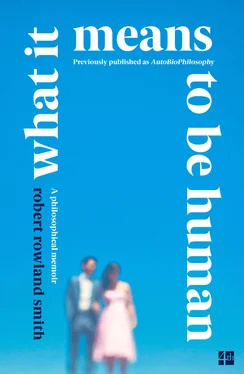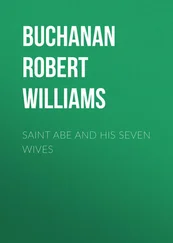That second triangle throws light on intimate relationships too. If you replace ‘our shared goal’ with ‘our relationship’, and interpret the lines as representing how much each partner is committed to that relationship, you have a triangle where the same dynamics apply as in the work scenario. The question is who feels worse. Is it me because I’m giving more and observing my partner giving less? After all, I’m the one being ripped off, picking up the slack. The diagram suggests that it’s actually worse for my partner. Not because she’s giving less per se, but because she’s located in the inferior position. She is looked down on both by me and by ‘the relationship’ as a concept. That makes matters less tolerable for her than they are for me. It also means that she’s more likely to leave than am I.
I believe we all carry such images within us. They might not assume the form of triangles, but we’ll have our way of figuring the balance or imbalance in any mutual enterprise. We know when things are off kilter. I call it ‘soul knowledge’.
Soul knowledge is deeper but simpler than psychological understanding. In tracking the complexities of human interaction, psychology sometimes loses touch with the underlying realities. Such realities aren’t always as complex as we imagine. Sometimes they are so simple that they can indeed be represented by a form as basic as a triangle. The danger, in other words, is that psychology can’t see the forest for the trees. Where psychology aims to quantify all sorts of data – tendency to agree or disagree, response to reward, frequency of relapse – soul knowledge measures the essentials. In this case, it takes a reading of the give-and-take in a relationship. Where the give-and-take is skewed, the result is a warping of the system as a whole, like a picture frame ruined by damp. It feels wrong. And because it feels wrong, it feels bad.
In other words, soul knowledge is a form of systemic awareness. It maps the tacit geometry of our connections with other people. We live in systems all the time, be they family systems, work systems or intimate relationship systems – and even fleeting systems like the audience we’re part of at a concert, or the queue we stand in at the post office. In all cases, we are switched on to our place in it and the place of others. When the system is in order, it feels right. The soul has an eye for the system as a whole, and unlike the self, which wants to stand out, is always ready to slot into its place.
What’s so very challenging about a family business is that two systems have to be reconciled. A family system has to be reconciled with a business system. At Rowland Smith & Son Ltd., the partners in the triangle, Colin and David, were not partners in the way that most colleagues might be, for the simple reason that one belonged to the family and the other did not. Strictly speaking, the former half-belonged to the family and the latter did not belong. I’m not sure it would be possible to chart this system, because Colin stood at once closer to, and further from, the shared goal understood as the family’s commercial interests, while also standing above, below and on the same level as David.
Systemically, it was a mess, and I think it had an impact on Colin’s soul. All his soul could have known was confusion. It might be pushing it to say that his MS was the direct result of this scrambling of his soul knowledge – being deprived of the chance to see a clear whole – but I find it hard not to draw at least a metaphoric parallel between the neurological misconnections in his body and the eccentric wiring in the system of the family business. In both cases, there’s a tragic failure of coherence.
Although David Cooke turned into, or was turned into, Colin’s nemesis, I do recall a period when one or two faltering attempts at a friendship were made by my father. It must have been a big deal for Colin, because although he came across as gregarious, handsome and jocular, it wouldn’t be an exaggeration to say that he had no friends. Life consisted of his office, our home and the commute between the two termini. I have more fingers on one hand than the number of times I remember my parents going out for the evening, and I have no recollection at all of any friend making a visit. The double bed in the commodious spare bedroom remained cold from 1970 when we moved in, right the way through to 1983 when we moved out.
I say the attempts were faltering, as if they could have been otherwise. But how could they, given that clash of the two systems, family and business? Even without such entanglements as those affecting Rowland Smith & Son Ltd., work friendships are rarely without complications. You don’t become friends with somebody through work unless the work was there in the first place to bring you together. The work provided the environment in which you met, and both of you will have gained entry to the organisation on the understanding that you would contribute to the shared goal. Work is the context of your friendship. So when you meet outside work as friends, the most you can do is to put that context in brackets. You can’t erase it altogether. Even if you never talk shop, your awareness of each other as co-workers remains in the back of your mind.
Why is that a problem? The presence of a shared goal acts like an alloy, thinning out the friendship’s integrity. Obviously, friends often do come together to perform a shared task, like putting up a tent or cooking a meal. The point is that the friendship doesn’t depend on such tasks in order to survive. That’s how friendships differ from relationships in the workplace, where the lack of a goal leaves people at a loss as to what to do. It is also how friendships resemble family relationships: both are an end in themselves. Friendships should consist in no more than that horizontal line between two people, with no tip of the triangle representing a goal. That horizontal line is also the line of equality. No friendship will be authentic if there’s any inkling of one friend feeling superior or inferior to the other. Both positions are bad for the soul.
The test comes when one of the friends quits the organisation. The deeper the friendship, the longer it can survive without the binding of work. We know we were never really friends if we lose touch soon after one of us has moved on. Needless to say, Colin and David did not remain friends in the wake of Colin’s sacking. Even when working together, the friendship never got off the ground. Ulterior motive was too much in play. For Colin, befriending David would have been, at least subconsciously, a way of neutralising a potential threat. For David, currying favour with another Rowland Smith could only bolster his position. The most they could have ever been to one another was ‘frenemies’.
The biggest stumbling block, therefore, was the name. Like a bell, my father’s surname had a resonance in Rowland Smith & Son Ltd. that David’s did not. Until Colin was removed, that is. Then the roles reversed. David became an honorary Rowland Smith, while Colin – sidelined from business and family alike – effectively forfeited his name. An acquired namelessness, like a reverse baptism, was one of the many facets of his plight.
But we shouldn’t let the peculiarities of the Colin/David scenario lead us into thinking that having different names is always a problem in friendships. Quite the reverse. Like marriage, friendship is exogamous. It involves making a bond with somebody outside the family. That requires you to choose a friend with a different surname. I mean by different surname ‘coming from a different lineage’, even if the actual word – Jones or Patel or Blanc or Diaz or Khan – is the same. If it were really the same family name – the same patronymic or matronymic, to give it its technical title – then you would be making friends with somebody from your family, which is unnecessary. Unnecessary because the bond already exists. If we think of friendship as the reducing of the otherness of other people, or as making the strange familiar, then in a family this labour of familiarisation has been done in advance. It’s implicit in the word ‘family’. Regardless of how much you like the person, befriending a family member is ever so slightly ingratiating. Ingratiating because superfluous.
Читать дальше












![Helen Rowland - The Widow [To Say Nothing of the Man]](/books/752764/helen-rowland-the-widow-to-say-nothing-of-the-man-thumb.webp)